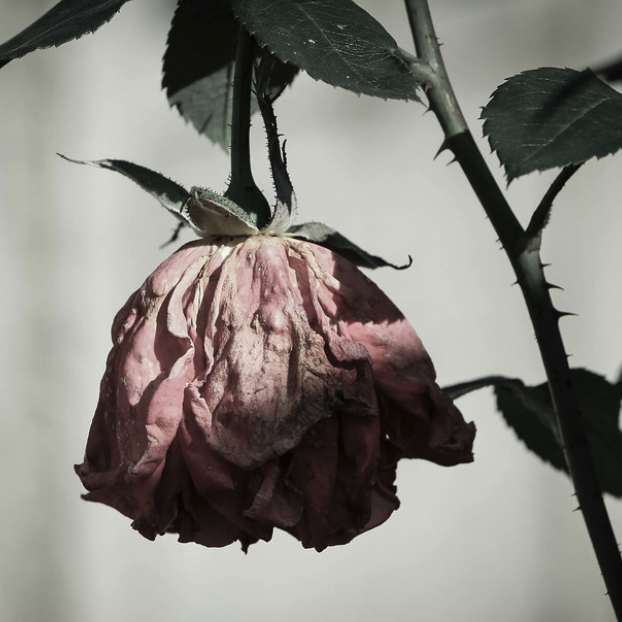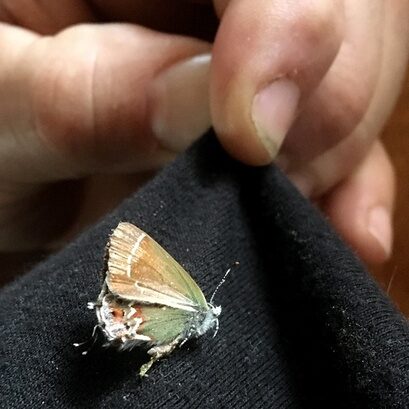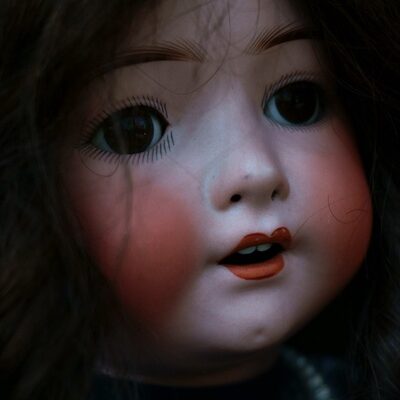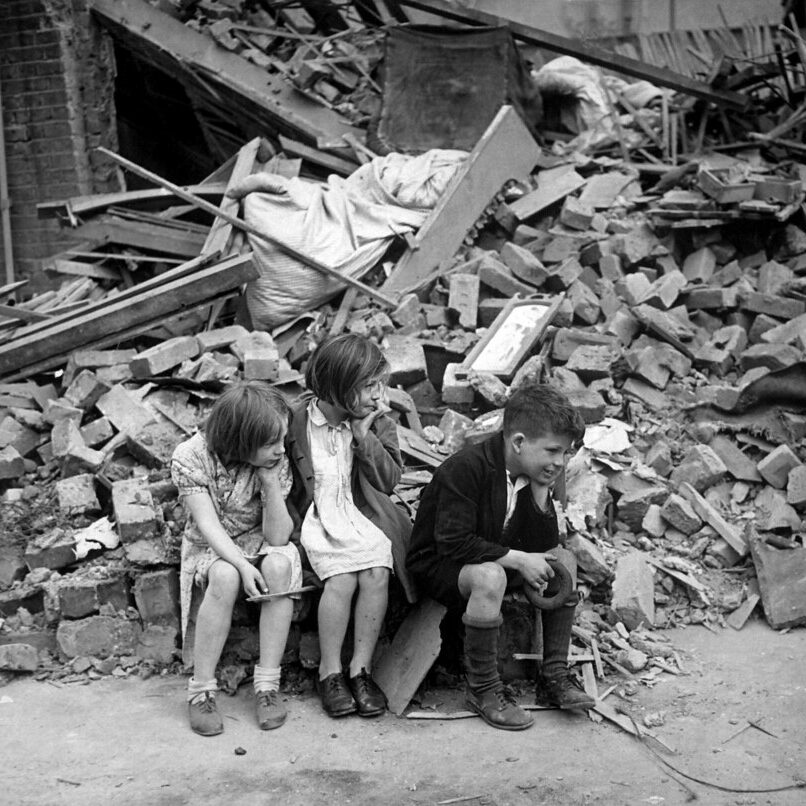creative nonfiction by Delaney Don

I want to believe it didn’t happen. The utter shock that exploded from my chest to settle in my stomach has made a home inside me ever since. It stunned me when I opened the text, the shock from the few words across my phone screen robbing me of the movement in my legs. A sudden roaring in my ears drowned out the sound of my mother’s voice. It’s a perfectly normal thing for people our age to do, but it isn’t who I thought he was. How many times had he kept this from me? How could it be true?
. . .
Everything I see is tinted red. The smallest things fuel the rage in my chest, bubbling up to the surface and erupting like a volcano on unsuspecting citizens. My normal self, trapped within me, smothered by uncontrollable fury. Silenced by things I cannot control. Words I don’t mean slip out my lips and into the hearts of the people I love most. The hole in my chest that held despair is now encompassed with an orange, burning flame. I stumble to grasp the burning sensation as it fights to escape and impose on another soul. It rips at my chest, agony in its rawest stage. The misery is so tangible yet the fire is just a feeling. Pressure builds inside and threatens to escape. The walls around me are closing in, each time he speaks the pressure grows stronger and stronger. I can’t contain it anymore. My eyes cloud with a steady stream of salty water seeking to douse the pain. The deafening roar within my ears grows louder and my mouth opens in a silent scream. Don’t touch me don’t touch me don’t touch me, I try to hiss. His face appears in my vision. The whites around my grey eyes are red from the sting of tears. My cheeks are blotchy and pink, my lips a dark rose, my palms dripping scarlet from where my grey painted fingernails pierced the skin. The chaos in my mind halts when he reaches out a hand and touches me. His fingers feel cool against my burning skin.
. . .
It’s as if a mourning curtain had been draped across the earth. As I walk, the rushing cars and passing pedestrians are hazy and grey. The rain continues and I am not granted a single moment of relief from the damp misery. A woman lumbers down the sidewalk with her short, ratty dog, her face reflecting pure agony and there’s a storm brewing in her eyes. The cars in the street do not exceed five miles per hour, and the woman and her dog are struggling to reach the end of the block. My droopy grey eyes roam as I walk past the woman with her dog. A tear drips down her cheek and hits the sidewalk. When it collides with the pavement it blends with the other tears from the sky above. What could have caused this pain that warps the world? My mind is clouded by the onslaught of questions and thoughts and scenarios. What if what if what if? The sharp ache in my chest breathes and flourishes, encouraged by the feelings the hard earth emits from around me. The desire for a ghost of a smile teases my lips. Wanting, needing, pure lust for a dreg of joy pulls at my consciousness. The urgent need for the pain to disappear. Deserving but unachievable, simply too far out of reach. Oh, what it would feel like to see the vibrant colors of the world once again.
. . .
Curtains drawn, pure black obstructing the room. Doors closed, shutting away outside threats. Shutting myself in. Here, nothing can touch me. I am hunched forward like an armadillo after a fright. Armadillos have shells to protect them. Me? I have nothing but fragile skin easily pierced by the knife of betrayal. The layers of clothes I wear and duvet that conceals me act as their own forms of protection. My own attempt at a shell. The more my skin is covered, the less likely the knife he holds can harm me. I pull my sleeves over my balled fists and my hood over my neck. Despite the layers I wear a persistent chill blossoms in the air around me. Thunder erupts from outside my windows, the echoing boom still ringing in my ears. The only thing to accompany me, the steady sounds of the storm around me. With each passing moment and each tear that collects in my eyes, I separate myself from the world. Regret lives in my tears as they begin the path down my cheek, the salty cold stinging the raw flesh on my neck where my fingernails tried to claw the ghost of my previous tears away. I don’t want to believe it’s true but the realization crushes me beneath its weight. The darkness of the room cascades over my body. I can feel the tears now, cascading down my neck and under my sweatshirt, probably lost somewhere between my chest and my stomach. I sink further into the chill of my bed and the only remaining comfort I possess. I have been immobilized by a pain I don’t recognize. A raging fire trying to ward off the darkness. The fire burns within me. But that fire has been smothered by my tears.
. . .
The sky is littered with the remnants of dark clouds from the seemingly endless thunderstorm. The sun has begun to peek out from behind these ominous clouds, shining its golden light onto our faces. The warmth of the rays vibrates through my body, lightly brushing against my soul, an encouraging touch to coax the armadillo out of its shell. We had sat together for hours, hands clasped and eyes locked as we talked ourselves off the edge. Now, I have no trouble putting one foot in front of the other. The people around us rush about like bees in search of pollen, each separate person in a rush to finish their daily tasks. Unlike them, I am in no rush to get anywhere. My path is undefined and infinite. I inhale the crisp breeze and hold it prisoner in my lungs. When I exhale, the agony that dominated my life clings to that breath as it leaves my body in a rush of pure relief. His words are soft and white noise to my ears, he follows along quietly as I navigate the winding streets. He’s a steady presence amongst the bustling bees in the hive. He points out the shops of tangerine, salmon, jade, and saffron candies, toys that make children squeal with delight, and restaurants that are home to different foods from around the globe. The street is a river of cars and buses, wheels turning over the rough cobblestone of ancient roads like boats gliding through water. The sidewalk we follow turns into a large landscape resembling an artist’s canvas with sparkling grass and endless skies. Together, we step into the painting. A small smile tugs at the corners of my lips.
The grass really is greener on the other side. And the sky is bluer, the sun more luminescent, the people vibrant and shining. He sits beside me, the sunlight bending to hit the side of his face, illuminating his walnut irises. My body is light, my head clear. The graze of his fingers over my arms real and anchoring me to this world. The breeze tastes sweet and is slightly tinged by the smell of the lingering rain. The grass, the color of emeralds, is soft under my fingertips. Prominent and sanguine music lives in the air around us, serenading the senses. The only things to exist in the present world right now are me and him, everything else is background noise, irrelevant to my development. My lips are decorated with a broad, toothy smile mirroring the one on his face. My mind heeds no protest as I reach my hand out to interlace my fingers with his. Light explodes across my vision and my body warms with pleasure. I feel alive. The final stage. After every storm lies the promise of a rainbow.












